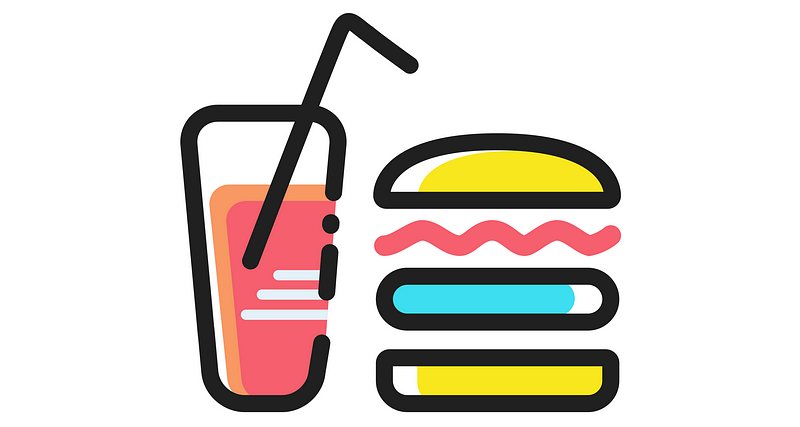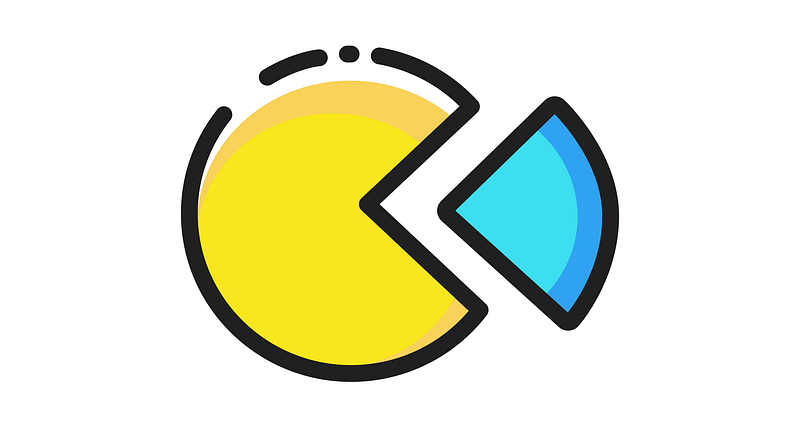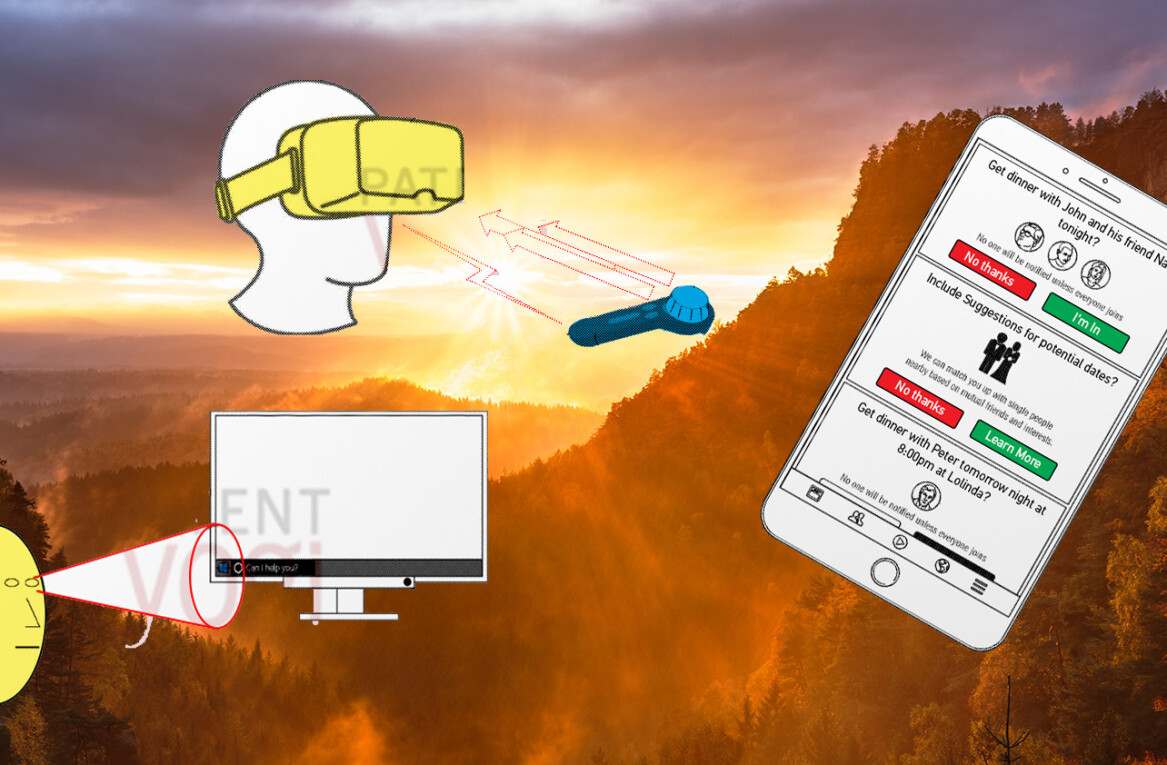
Realizing you suck at what you do…well, sucks.
Or does it?
It’s probably more of a blessing than you realize, especially in something as complicated and subjective as design.
But before we get into that, it’s important to remember that realizing you suck at something, is completely different to beating yourself up on what you can or cannot do.
Whether you’ve got 10 years or 10 months of design experience, narcism will kill your mood, happiness and your productivity.
There’s a fine line between realizing there’s room for growth and self-improvement, without being totally destructive in thought.
But with that said, you’ve got to look forward to now that you’ve realized suck at design.

You’ve got great taste
First off, realizing you suck at design, means that your taste is far greater than your current ability.
Although taste is tricky to define, it’s essentially how you view and feel about the world around you. Even though taste is hard to train and quite subjective (at the best of times) if you have great taste, then you’re able to define and create what’s appealing to yourself and others too.
If you’re unhappy with the work you’re currently producing, then it’s likely that your work doesn’t meet or match your tastes expectations, which is a great problem to have.
Striving to match your taste gives you focus and vision, but more than that, it shows that you’ve been absorbing quality sources of inspiration.
Immerse yourself with incredible inspiration and brilliance will follow.
Although taste is tricky to train, the better the inspiration (and people) you surround yourself with, the greater your taste will become.
It’s important to remember that taste isn’t as snobby as it’s made out to be.
Everyone in the world has taste, and if someone chooses to use their taste to demean others (and their work) then it’s a poor reflection on that person’s character, rather than their taste.

You know there’s room for growth
What do you do when you realize your work isn’t to your taste?
If taste is the bar, then now you know how high to jump, and that’s exactly what you need to do.
Jump and reach the bar.
It’s far too easy to sit around and feel sorry for yourself (or beat yourself up for sucking at something).
But what good does that do?
You’re an awesome person and you deserve to be happy. If you’re passionate about what you want to do, then go out there and do it.
If your work doesn’t match your taste, then keep on working at it.
You’re in charge of how you grow and you’re able to look after every step you take. Compare yourself as a designer now, to last week, last month or last year and I guarantee you’re a better designer than you were.
How much so depends entirely on the work you’ve put it in, how hard you’ve pushed yourself and how well you’ve looked after yourself too. Far too many people think it’s a good idea to work yourself into an early grave — TL;DR it isn’t.
Grow as much as you want to grow, and work as much as you want to work, your life is in your hands.

You’re in control of your ego
Most people tend to overestimate their current ability and underestimate where they could be with mindful practice.
If you think you’re a design guru, then your growth is going to be stagnant in comparison to someone who sucks, but believes that with hard work they could become the next Design Jesus.
Look at it this way, if you’re reaching for the stars and you end up in the clouds, that’s still amazing. You might not have reached the stars yet, but you can keep working to get there.
If you believe you’re in the clouds (and that’s as good as it gets) then you’ll never reach the stars.
As a rule of thumb, no one ever sucks as much as they tell themselves they do, but at least you can rest easy knowing your ego is in check.
While ego can be a useful tool to protect us from harsh (and sometimes unforgiving) assaults of character, too much ego is detrimental to our lives.
Ego can stop us learning, growing and being happy, so be thankful yours is in check.

You can achieve a beginner’s mindset
Think back to the last time you started learning something new.
You asked silly questions, made mistakes and absorbed huge amounts of information in an incredibly short space of time.
Why? Thank the beginner’s mindset.
As beginners we can ask questions, be curious and make mistakes because…well, who can judge us?
Here’s an interesting quote that summarizes this train of thought:
Youth cannot know how age thinks and feels. But old men are guilty if they forget what it was to be young
And if we mix things up a little…
Beginners cannot know how experts think and feel. But experts are guilty if they forget what it was to be a beginner.
As a beginner, you’re ignorant to what it’s like to be good or incredible.
You have no expectations to manage, whether that’s your own or the expectations of others, you’re free. Free to do and work however you choose, you’re not expected to make miracles.
On the other end of the spectrum, when you think you’re great, you’re worried about making the same mistakes that a beginner would. You take fewer risks, worry about the thoughts of others and play it safe for the sake of keeping up appearances.
But as a beginner, who cares?
You’re desperate to learn more and you don’t care if something sucks. Instead, you’re excited that you’ve learnt to do anything at all.
You’re excited to show your work to anyone and everyone, no matter what they say to you. You want feedback, good bad or ugly (who cares).
Thinking like a beginner is one of the best parts about sucking at something, and it’s worth keeping that in mind with everything you do.

You (probably) keep a journal or portfolio
An excellent way to track and measure you’re progress is to keep a journal or a portfolio. Being able to see where you are now, where you were and defining what success looks like helps you to grow.
Set yourself goals, track your progress and every week, month and year and you’ll be able to see improvement.
Being able to follow a trail of progress shows how much you’re learning and growing through your hard work. It also shows where your bottlenecks are, and allows you to take actionable steps towards fixing them.
All of this will help keep your inner critic at bay, making you a little less harsh on yourself (in a good way).
Instead of criticizing how much time you feel like you’re wasting practicing, you’ll be able to see how it’s paying off.
No one in the world knows what they’re doing.
As kids we have this romantic vision that when people say they’re X, they completely embody that description.
We imagine they know absolutely everything around that subject, and can do anything that relates to X.
The reality is that everyone’s a little clueless, and that’s okay.
Despite that, it’s safe to say that each and every day, we all get a little better and doing whatever it is we do.
A humble attitude allows you to learn, build and be accountable for who you want to be. It let’s you set your sights high, and do everything you can to reach the stars.
Even if you fall short, the clouds are a great place to be.
Get the TNW newsletter
Get the most important tech news in your inbox each week.




